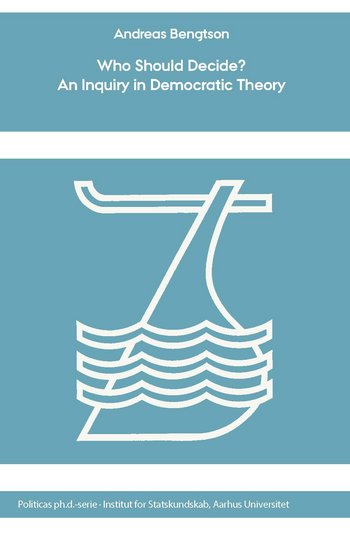Andreas Bengtson
Who Should Decide? An Inquiry in Democratic Theory

This dissertation investigates whom we should include in democratic decision-making. This is known as the boundary problem in democratic theory. Two popular answers are given in the literature, namely the all-affected principle and the all-subjected principle. Besides showing that the all-affected principle entails that dead people must be included in democratic decision-making and that there is a symmetry in the principle such that both those who are negatively and positively affected by a decision must be included, the thesis also shows that the all-subjected principle entails inclusion of future people and that we must establish family and workplace democracy. In addition to investigating these so far unacknowledged implications of what these principles entail for democratic inclusion, the thesis argues, surprisingly, that the principles ultimately fail as solutions to the boundary problem because the values taken to underlie the principles cannot explain why an affected or subjected individual must be included in democratic decision-making because she is affected or subjected. We must thus look elsewhere for a proper solution to the boundary problem. The thesis thus argues that we must solve the boundary problem by demarcating the demos in accordance with the value of democracy. Presumably, different answers to this question will lead to different demarcations of the demos. The final part of the thesis explores a value-based solution according to which democracy is valuable because it is a constituent part of relating as equals.
![]() Ophavsretten tilhører Politica. Materialet må ikke bruges eller distribueres i kommercielt øjemed.
Ophavsretten tilhører Politica. Materialet må ikke bruges eller distribueres i kommercielt øjemed.